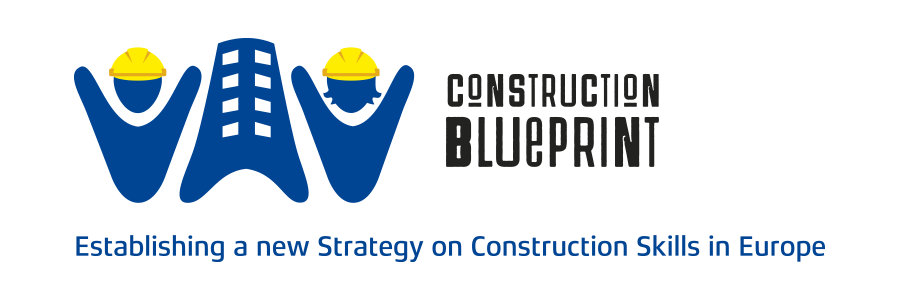The joint entity was called to intervene in the Competences and Qualifications Group of the EC “Construction 2020” Action Plan, in the FIEC Training Commission, and in the European Professional Qualifications Week 2018.
Over the last two weeks, the Fundación laboral de la Construcción has taken part in various international forums. The joint entity was invited to participate in the Competences and Qualifications Group of the European Commission for the Action Plan of the “Strategy for the Sustainable Competitiveness of the Construction Sector and its Enterprises” -COM(2012)433-; in the Training Commission of the FIEC (European Construction Industry Federation) and in the European Professional Qualifications Week 2018.
The Area of Industrial Transformation and Advanced Value Chains, belonging to the Directorate General for Internal Market, Industry, Entrepreneurship and SMEs of the European Commission, organized last Monday in Brussels, the meeting of the Group on competences and qualifications of the European Commission for the Action Plan “Construction 2020”.
Javier González López, head of International Projects at the Fundación Laboral, presented the “All Construction” project, led by the joint entity, as an example of a strategic framework for the competences and qualifications of the European construction industry.
This sectoral initiative was also explained by Gonzalez at the FIEC Training Commission on 5 November in the Belgian capital.
European Professional Qualifications Week 2018 in Vienna
Among the more than 400 participants who discussed the future of Vocational Education and Training (VET) during the European Vocational Skills Week 2018 (EVSW) in Vienna, the Fundación Laboral did its bit.
The central axis of EVSW2018 was a block of conferences and workshops, jointly organised by the European Centre for the Development of Vocational Training (Cedefop) and the European Commission, which took place from 7 to 9 November.
The director of Training of the Fundación Laboral de la Construcción, José Antonio Viejo Rodríguez, took part, on 7 November, in the thematic panel “Focus on continuous training: the challenges posed by labour transitions and the extension of working life”. A number of issues were raised during the workshop, such as the main challenges faced by existing VET (Vocational Education and Training) systems in dealing with such work transitions and longer working lives; the actions needed to support lifelong learning pathways (guidance, validation, recognition); or the causes of the gap between European countries, with regard to adult education and lifelong learning.
The world is changing the way we work and live: from basic manufacturing skills to highly qualified skills, so the trend is from industry to services. In this sense, three key aspects are of great importance: technological innovation and digitisation, the transition to a greener economy, and migration and mobility.
In addition, technical skills alone are not enough; it is essential to complete them and strengthen the professional profile with basic skills (Steam), transversal skills (among which “learning to learn” is the most important) and specialised skills.
The challenge for Europe between now and 2030 is to ensure quality, equitable and inclusive education and to promote learning opportunities for working people throughout their working lives.
From being ‘demodé’, to becoming an item on the EU’s political agenda
As highlighted at this European forum, the EU’s political agenda has elevated VET as one of the fundamental points for the renaissance of learning, after being too much for many years.
In addition, the European Commission’s Director General for Employment, Social Affairs and Inclusion, Joost Korte, said: “Today, competencies for life are competencies for employment: creativity, curiosity, sense of initiative. It’s not just about technical skills; excellence in VET means that everyone can develop to the fullest and express their full potential.
For 2035, the EC outlines three scenarios for VET: “pluralistic, differentiated and for special purposes”. On the other hand, it was specified that in an environment where businesses and the economy are changing, skills have to adapt directly to these changes.
Events of excellence
This is the third edition of the EVSW, in which the joint entity has also been present through the interactive map of events of excellence, which shows practices highlighted by the European Commission (EC) in terms of dissemination, awareness and promotion of VET carried out by European projects in different countries of the European Union (EU).
It is the second year that some European project events led by the Fundación Laboral have been selected to form part of this interactive map. On this occasion, of the 1,551 events in 47 countries, they can be consulted:
- The final dissemination day of the Lean.Co project, “The positive power of change: Lean-BIM-Digitalisation of construction”, held in Pamplona (Navarre) on 18 September.
- The informative seminar of the project Co.Tutor, “Current situation in construction companies in the training of apprentices”, held in Zaragoza on 18 September.
- The “Promoting the incorporation of women in construction” awareness day, organised by the Red Cross and the Fundación Laboral de la Construcción, in which the European project Women can Build took part, held in Madrid on 21 September.
- The final dissemination day of the project Co.Tutor, “Improving the participation of SMEs in construction apprentices training”, held in Madrid on 24 September.
- The “I Conference on Innovation in Training for the construction industry”, held in Madrid on 25 September.
- And the Infoday of the Bus. Trainers project, held in Malta on 9 November.




